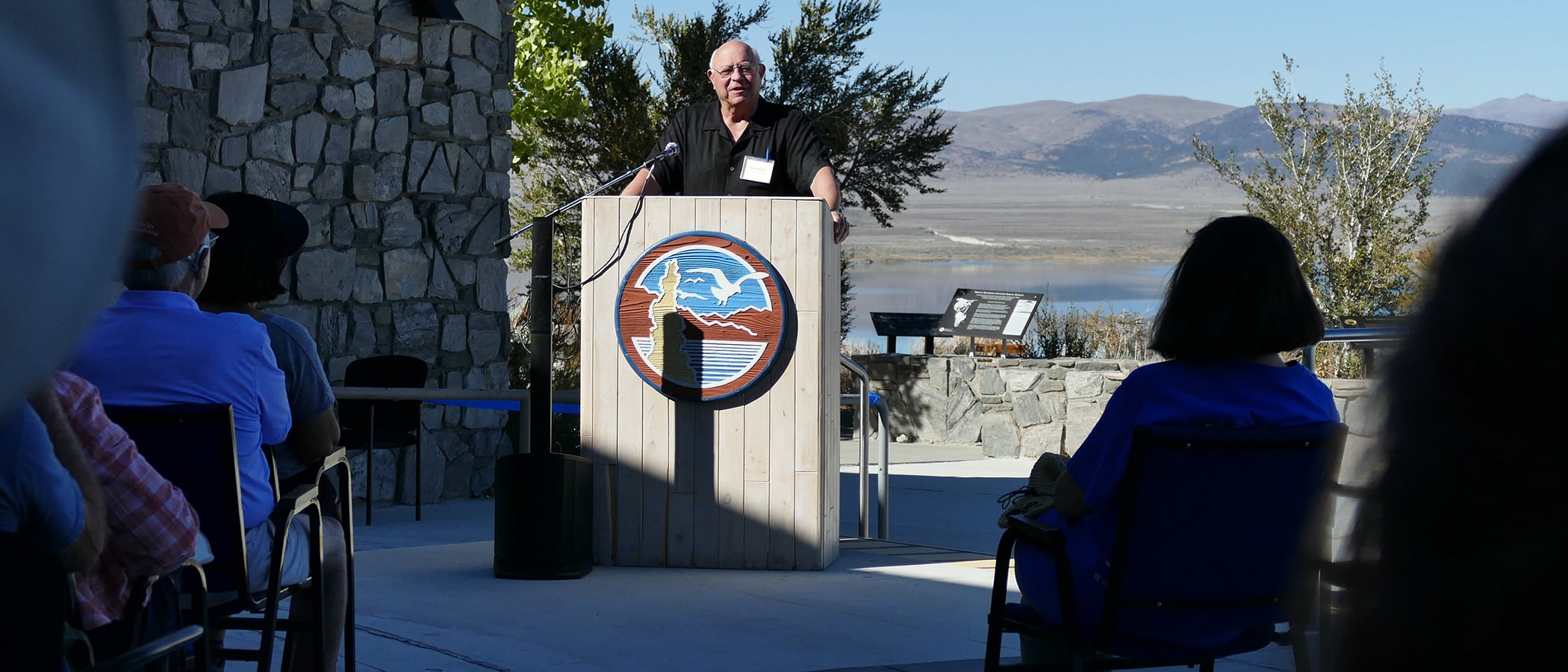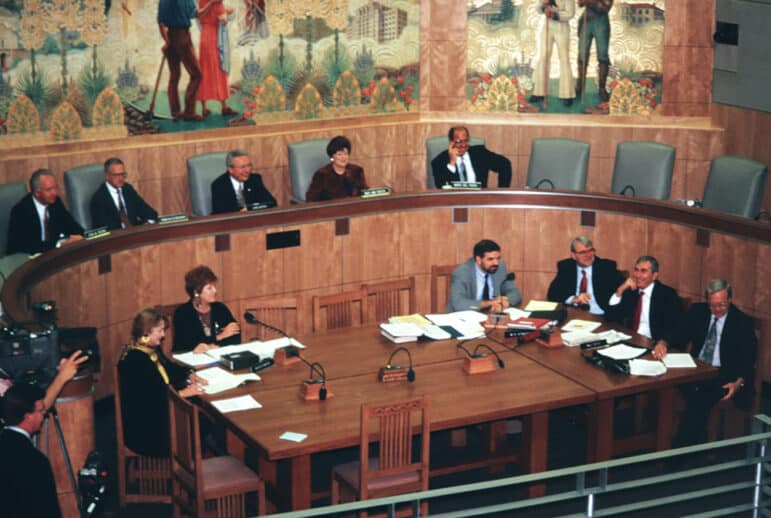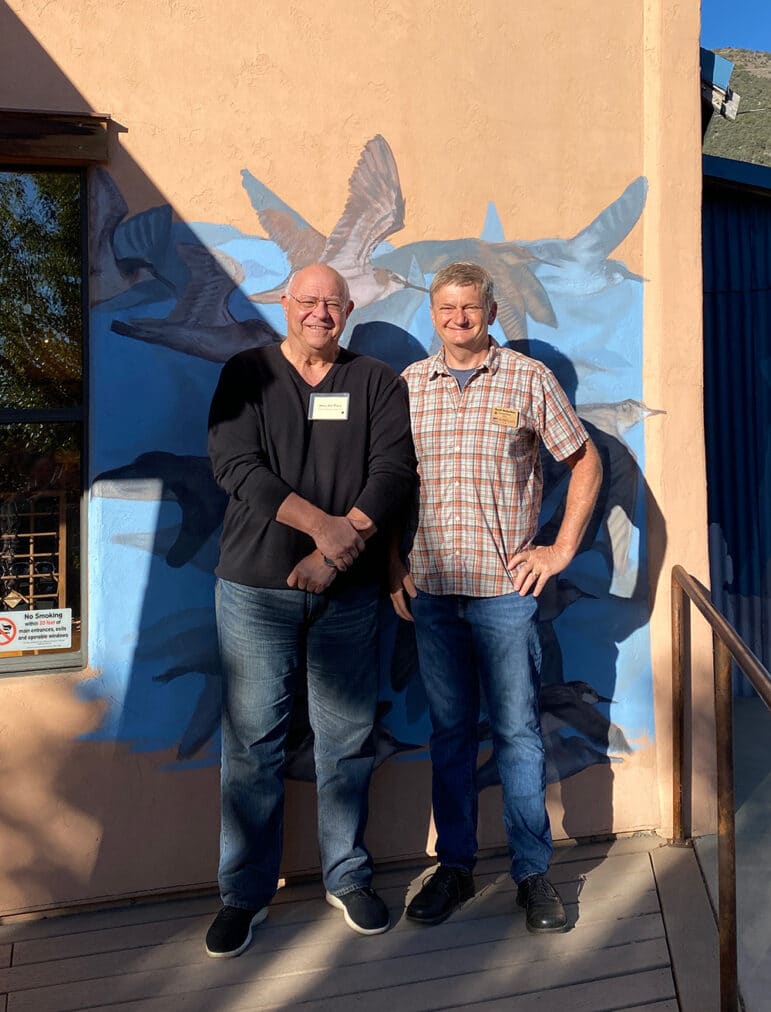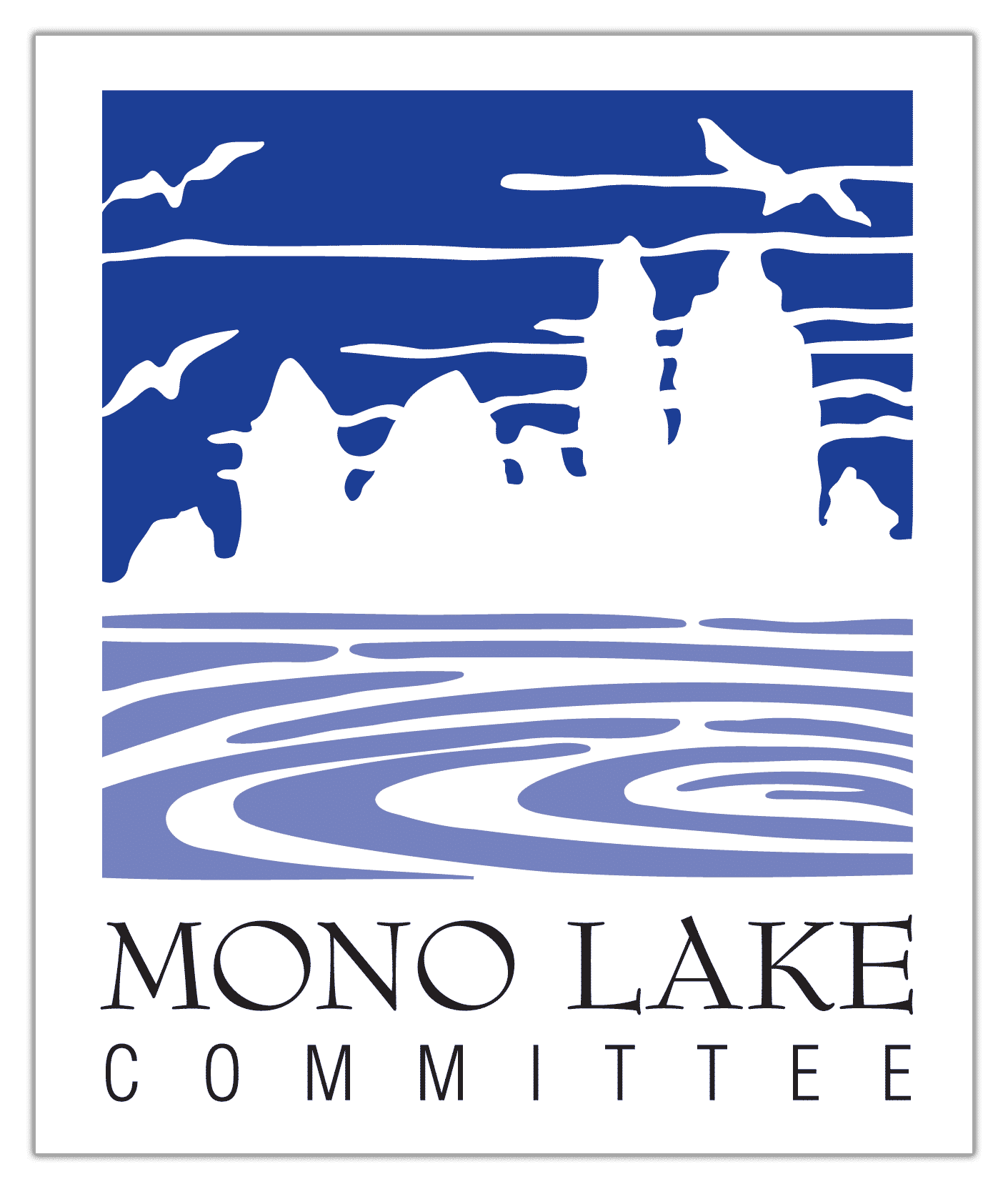
In September the Mono Lake Committee hosted members and supporters in Lee Vining to celebrate Mono Lake and present the Committee’s Defender of the Trust Award. The award honors individuals who have made extraordinary contributions to championing Mono Lake and advocating for the Public Trust.
This year was special: the event took place on the 30th anniversary—to the day—of the California State Water Resources Control Board’s Decision 1631 establishing the 6,392-foot protection mandate for Mono Lake. And so too was the award recipient: Marc Del Piero, who served as the attorney member of the State Water Board from 1992 to 1999 and ran the lengthy Mono Lake hearing that led to D1631.
A remarkable State Water Board hearing
The hearing 30 years ago lasted for 46 days and many nights. It involved 14 formal parties, 17 attorneys, and more than 125 witnesses. Over 1,000 exhibits were introduced into the evidentiary record, and the transcripts ran to 30,000 pages.

This year’s Defender of the Trust honor went to Del Piero because he led a meticulous, deliberate, and fair hearing process. Such precision was necessary for the first-of-its-kind effort to identify and protect Mono Lake’s Public Trust values. The hearing had to answer many questions: What was the full roster of Public Trust values, from ecosystem health to air quality? How were diverse impacts to be measured? When, specifically, was harm inflicted, say, on brine shrimp, and at what lake levels was that impact acceptably reduced? Could lake values be protected while recognizing legitimate needs for water in the City of Los Angeles?
Mono Lake, its ecosystem, wildlife, and Rush, Lee Vining, Walker, and Parker creeks—they were in such a remote part of California and so long ago deemed of little value compared to Los Angeles Department of Water & Power water diversions—in Del Piero’s hearing room they all finally got their day to shine.
The scope and depth of the work remain legendary at the State Water Board. When it was complete, the Board achieved a first in California: the revision of a long-established water right of the City of Los Angeles to include requirements to restore the fisheries of the tributary streams to good condition and to restore Mono Lake to health to protect Public Trust values.
The hearing provided the information needed to balance competing factors with integrity. And not incidentally, although all parties accepted D1631, the record was ready to stand up to the litigation that had been expected to follow.
Del Piero’s advice for the upcoming hearing

At the September event Del Piero spoke to the audience, which included attorneys, witnesses, public speakers, and Committee staff who were present in his hearing room three decades prior.
Acknowledging the success of D1631 in halting the destruction of Mono Lake, Del Piero spoke of the Board’s expectation that the lake would be at the mandated healthy level by now, not 50% short. In their decision, the Board linked stream diversion amounts to lake level, using the best modeling at the time. But they were also farsighted enough to create a safeguard by committing the Board to a hearing if things unfolded differently than expected—that hearing is now expected in 2025.
Del Piero also highlighted the seriousness of the work ahead, underscoring the attorney smarts, science testimony, staff work, good problem-solving, and old-fashioned luck that will be required to ensure the lake level mandate is achieved.
“The price of the preservation of Mono Lake, its tributary streams, the ecosystems that we’re here celebrating tonight,” Del Piero made clear, “is vigilance.”
This post was also published as an article in the Fall 2024 Mono Lake Newsletter. Top photo by Elin Ljung.
